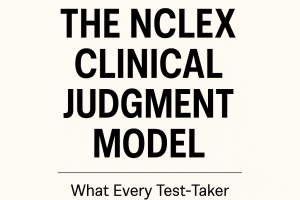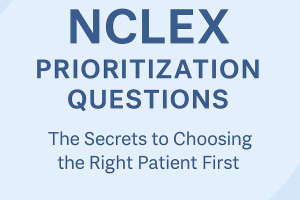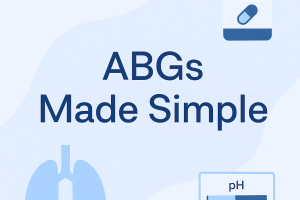PSYCHIATRIC MEDICATIONS: ANTIDEPRESSANTS, ANTIPSYCHOTICS , AND ANXIOLYTICS

Introduction:
Psychiatric medications have transformed mental health treatment, giving patients with mood disorders, psychotic disorders, and anxiety disorders a chance to manage symptoms and improve quality of life. This post will explore three main categories of psychiatric medications—antidepressants, antipsychotics, and anxiolytics—detailing how they work, common side effects, and key considerations. Whether you’re preparing for a nursing exam or looking to deepen your knowledge, this guide provides essential insights into these medications.
1. Antidepressants: Improving Mood and Alleviating Depression
Antidepressants are primarily prescribed to treat depression, but they can also help with anxiety disorders, chronic pain, and other conditions. These medications generally work by increasing the levels of certain neurotransmitters—serotonin, norepinephrine, and dopamine—which are crucial in regulating mood.
Types of Antidepressants:
• SSRIs (Selective Serotonin Reuptake Inhibitors): These include medications like fluoxetine (Prozac) and sertraline (Zoloft), which increase serotonin levels in the brain and are often the first line of treatment due to their generally mild side effect profiles.
• SNRIs (Serotonin and Norepinephrine Reuptake Inhibitors): These include venlafaxine (Effexor) and duloxetine (Cymbalta), which help increase both serotonin and norepinephrine.
• Tricyclic Antidepressants (TCAs): An older class of antidepressants like amitriptyline and nortriptyline that can be effective but often come with more side effects, including sedation and dry mouth.
• MAOIs (Monoamine Oxidase Inhibitors): MAOIs, like phenelzine (Nardil), are less commonly used today but may be prescribed for treatment-resistant depression. Patients taking MAOIs need to avoid certain foods and medications to prevent dangerous interactions.
Key Considerations and Side Effects:
• Antidepressants generally take several weeks to reach full effectiveness.
• Common side effects include nausea, headaches, and sexual dysfunction, but these often improve with time.
• Patients should avoid abruptly stopping these medications to prevent withdrawal symptoms and a potential relapse in depression.
2. Antipsychotics: Managing Psychotic Symptoms
Antipsychotics are used to treat symptoms of psychosis, such as delusions and hallucinations, as seen in conditions like schizophrenia and bipolar disorder. They work by blocking dopamine receptors in the brain, helping to reduce symptoms and stabilize mood.
Types of Antipsychotics:
• First-Generation (Typical) Antipsychotics: Older antipsychotics like haloperidol (Haldol) and chlorpromazine are effective but often come with higher risks of extrapyramidal side effects (such as tremors and rigidity).
• Second-Generation (Atypical) Antipsychotics: These include risperidone (Risperdal), quetiapine (Seroquel), and aripiprazole (Abilify). Atypical antipsychotics are often preferred due to a lower risk of motor side effects, though they can cause weight gain and metabolic changes.
Key Considerations and Side Effects:
• Antipsychotics can cause weight gain, increased blood sugar, and cholesterol levels, so regular monitoring is important.
• Extrapyramidal symptoms, such as tremors and restlessness, may occur, especially with first-generation antipsychotics.
• Some patients may experience sedation, dizziness, or orthostatic hypotension (a drop in blood pressure when standing).
3. Anxiolytics: Reducing Anxiety and Promoting Calm
Anxiolytics, or anti-anxiety medications, are used to alleviate symptoms of anxiety and panic disorders. Many work by enhancing the effect of a neurotransmitter called gamma-aminobutyric acid (GABA), which has a calming effect on the brain.
Types of Anxiolytics:
• Benzodiazepines: These medications, such as lorazepam (Ativan) and diazepam (Valium), are highly effective in reducing acute anxiety. However, they carry a risk of dependency and are generally prescribed for short-term use.
• Buspirone: Unlike benzodiazepines, buspirone is a non-addictive option often used for long-term management of anxiety.
• Antidepressants: SSRIs and SNRIs are frequently used for long-term anxiety management, especially for generalized anxiety disorder (GAD).
Key Considerations and Side Effects:
• Benzodiazepines can cause drowsiness, dizziness, and dependency, and should be used with caution.
• Patients on buspirone may experience headaches, dizziness, or nausea, though it has a lower risk of dependency than benzodiazepines.
• Sudden cessation of benzodiazepines can lead to withdrawal symptoms, so a gradual reduction in dosage is essential.
Important Tips for Safe Use of Psychiatric Medications:
• Follow Prescribed Doses: Always take medications exactly as prescribed by the healthcare provider, and avoid self-adjusting dosages.
• Avoid Alcohol and Recreational Drugs: Combining psychiatric medications with alcohol or other drugs can worsen side effects or lead to dangerous interactions.
• Report Side Effects Promptly: If side effects become problematic, patients should speak with their provider about possible adjustments or alternative medications.
• Stay Consistent: Most psychiatric medications are most effective when taken consistently, even if patients start to feel better.
Sample Questions to Test Your Understanding:
1. Question: Which class of antidepressants generally has the mildest side effect profile and is commonly used as a first-line treatment?
• A. SSRIs
• B. SNRIs
• C. TCAs
• D. MAOIs
Answer: A. SSRIs are generally well-tolerated and are often the first-line treatment due to their relatively mild side effects.
2. Question: Which type of antipsychotic is typically associated with fewer extrapyramidal side effects?
• A. First-generation (typical) antipsychotics
• B. Second-generation (atypical) antipsychotics
• C. TCAs
• D. MAOIs
Answer: B. Second-generation (atypical) antipsychotics are generally preferred due to their lower risk of extrapyramidal side effects.
3. Question: Benzodiazepines are best suited for which type of anxiety treatment?
• A. Long-term anxiety management
• B. Short-term or acute anxiety relief
• C. Treating depression
• D. Chronic psychosis management
Answer: B. Benzodiazepines are typically used for short-term or acute anxiety relief due to their risk of dependency.
Conclusion:
Psychiatric medications, including antidepressants, antipsychotics, and anxiolytics, play a critical role in treating mental health conditions, allowing individuals to manage symptoms and improve quality of life. With careful monitoring and adherence to prescribed regimens, these medications offer hope and stability for those with mood, anxiety, or psychotic disorders. Always consult with a healthcare provider before making any changes to medication, as proper management can make all the difference in achieving a stable, healthy outcome.






